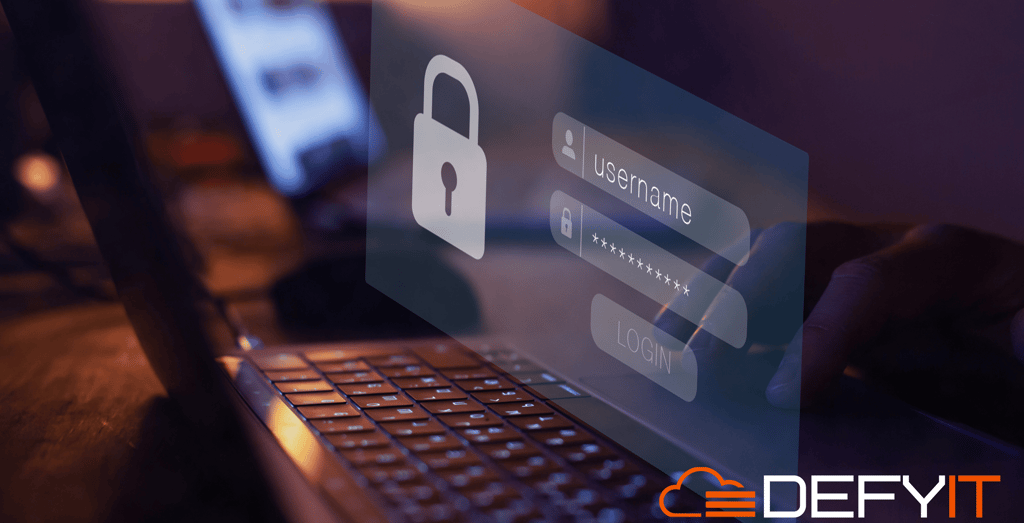Why Every Small Business Needs a Cybersecurity Audit
Here are the 7 reasons why small businesses need cybersecurity audit and how DefyIT’s tailored cybersecurity solutions for corporate and small businesses, plus expertise in computer repair & maintenance services, can safeguard your operations.
1/20/20253 min read


Cyber threats are rapidly evolving and impacting businesses of all sizes. Small businesses, in particular, face greater risks due to limited resources for recovering from major breaches. This makes conducting a cybersecurity audit essential.
At Defy IT, we specialise in delivering cybersecurity solutions for corporate and small business clients that are both targeted and cost effective. A cybersecurity audit is the first step to identifying vulnerabilities, strengthening defences, and ensuring your business is protected against growing cyber threats.
Before we dive into the details, let’s clarify what a cybersecurity audit involves.
What Is a Cybersecurity Audit?
A cybersecurity audit is a thorough review of your business’s IT infrastructure, policies, and practices. It evaluates your existing security measures, identifies vulnerabilities, and provides actionable recommendations to mitigate risks.
Think of it as a “health check” for your IT systems.
Whether your business relies on computer repair & maintenance services to stay operational or manages a cloud based environment, a cybersecurity audit ensures you’re prepared for potential threats.
7 Reasons Why a Cybersecurity Audit Is Crucial for Your Business
1. Identifies Vulnerabilities in Your IT System
Every IT system has weaknesses, whether it’s unpatched software, outdated hardware, or weak passwords. A cybersecurity audit thoroughly examines your systems to uncover these vulnerabilities so they can be addressed.
For example, imagine a small café in Brisbane using a point of sale (POS) system connected to an unsecured Wifi network. Hackers could intercept customer payment data, leading to financial losses and reputational damage. A cybersecurity audit would flag the unsecured network and recommend solutions, such as encryption or segregating networks for POS systems.
2. Ensures Compliance with Regulations
Australian businesses are required to adhere to data protection laws, including the Australian Privacy Act and the Cyber Security Act 2024 (Cth). These laws mandate businesses to secure sensitive data and implement adequate security measures.
In some cases, company directors may face personal liability if negligence in handling sensitive data is proven. Failing to comply can result in significant fines and legal consequences. A cybersecurity audit ensures your business meets its compliance obligations, avoiding costly penalties.
3. Protects Sensitive Business Data
Small businesses manage a wide range of sensitive data, from employee records to customer financial details. A cybersecurity audit helps safeguard this data against cyberattacks and insider threats.
For example, a Brisbane based marketing agency storing client campaign details and financial data on cloud platforms could face severe consequences if access controls or encryption are lacking. A cybersecurity audit evaluates your data storage security, recommends access restrictions, and protects client trust.
4. Reduces Downtime from Cyber Incidents
Cyberattacks can severely disrupt your business operations, causing downtime that prevents you from serving customers or meeting deadlines. For example, a ransomware attack could leave critical files inaccessible until a ransom is paid.
A cybersecurity audit identifies these risks and helps you implement preventive measures, such as robust backup systems. This ensures your business can recover quickly in the event of an incident.
5. Builds Trust with Customers
In today’s competitive market, customers value businesses that prioritise data security. A cybersecurity audit not only protects your systems but also demonstrates your commitment to safeguarding their information.
This commitment can differentiate your business from competitors and foster long-term customer loyalty.
6. Improves IT Efficiency
A cybersecurity audit isn’t just about finding vulnerabilities—it’s also an opportunity to streamline your IT systems. By eliminating outdated or redundant processes, you can improve efficiency and reduce costs.
For instance, a small Brisbane accounting firm might discover during an audit that it runs multiple antivirus programs across its systems, unnecessarily slowing performance. Consolidating these into a single, effective solution enhances productivity and saves money.
7. Saves Money in the Long Run
While a cybersecurity audit may seem like an expense, it’s an investment that saves you from the much higher costs of recovering from a cyberattack.
Consider the case of a small Brisbane accounting firm that fell victim to a phishing attack, losing $50,000. A cybersecurity audit could have uncovered vulnerabilities in its email systems and provided training to employees on recognising phishing attempts.
By preventing breaches and avoiding penalties or operational disruptions, an audit offers significant long-term financial benefits.
Conclusion
A cybersecurity audit is much more than a technical check up; it’s a proactive step towards protecting your small business from costly cyber threats. By identifying vulnerabilities, ensuring compliance, safeguarding sensitive data, reducing downtime, and improving IT efficiency, an audit provides both peace of mind and a competitive edge.
At Defy IT, we specialise in tailored cybersecurity solutions for corporate and small businesses, delivering precisely what your business needs without unnecessary extras. With our expertise in computer repair & maintenance services, we ensure your systems are not only secure but also optimised for success.
Don’t wait until a cyberattack threatens your business. Take control of your cybersecurity today with a comprehensive audit from Defy IT.
Contact us now to protect your business, optimise your IT, and ensure a safer future.
Defying Expensive IT, transforming your IT management into something great.
Contact Us
subscribe to our newsletter
Level 2, 49 Station Road Indooroopilly Q 4068
(07) 3521 8515
© 2025 Terabyte Networks Pty Ltd. All rights reserved.


Website by Defy Web
